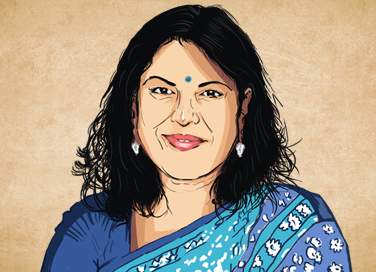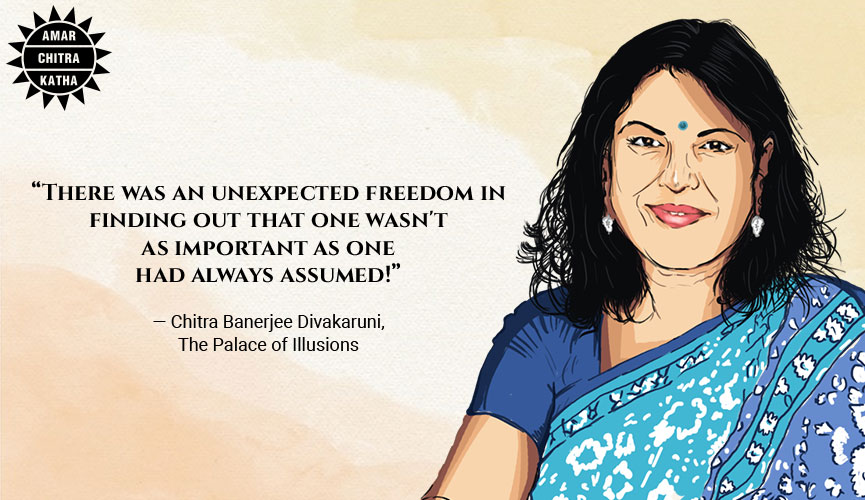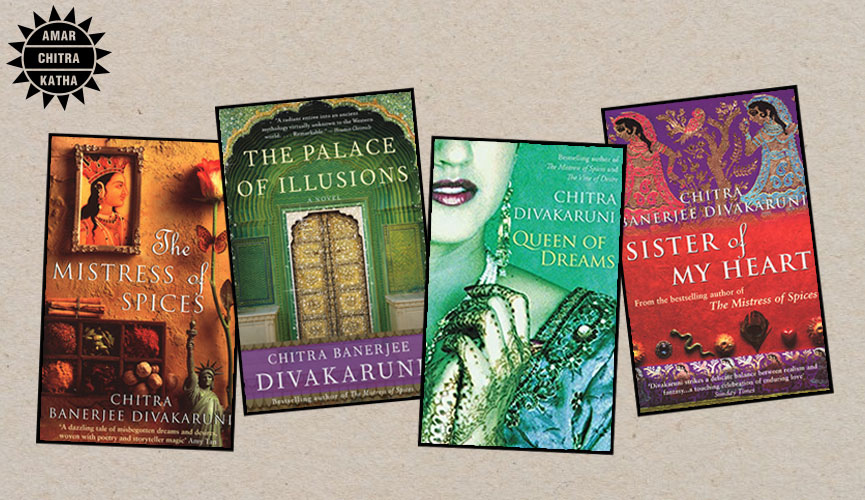Profile: Chitra Banerjee Divakaruni
- June 4, 2021


Profile: Chitra Banerjee Divakaruni
- June 4, 2021
By Mehar Dhillon
Chitra Banerjee Divakaruni embeds within her work the subtleties and complexities of what it is like to be a woman, or to identify as one, in a patriarchal society. This patriarchal society erases the experiences of women and fills the void with an objectified version of a woman, as constructed by the male gaze. Women no longer remain people, but concepts and fantasies. She deploys her skill as a writer to restore these forgotten female voices.

This prolific writer was born in Kolkata, India. She pursued higher studies in the United States and received a Master’s degree in English from the Wright State University in Dayton, Ohio, and a PhD from the University of California, Berkeley.
To receive more such stories in your Inbox & WhatsApp, Please share your Email and Mobile number.
Her novel, The Forest of Enchantments, is a retelling of the Ramayana but through the eyes of Sita. The story of Sita has always been a subset of the main story of the male protagonists. Such storytelling makes it impossible to accurately depict and explore Sita’s uniquely female experiences and essentially hides her voice. Divakaruni manages to unearth Sita’s voice and pen it down in The Forest of Enchantments, thus adding more depth and nuances to the age-old epic, the Ramayana.
The writer takes the same approach in The Palace of Illusions. In this novel, the half-mythical and half-historical fusion that is the Mahabharata, is reimagined through the perspective of Panchaali, the wife of the five legendary Pandava princes. The novel demonstrates the virtues and qualities this princess possesses and how she becomes a pillar of support for her husbands. It fleshes out her varied emotions as the Pandavas fight to reclaim their throne and also her determination and strength as she takes control of the household from her mother-in-law. Once again, Chitra manages to add more dimensions to an age-old story.

Arranged Marriage is a compilation of many short stories that delve into the experiences which are distinct to Indian women. Most of the stories in this collection follow the dissonance faced by Indian women of different backgrounds as they navigate their way through American culture. Their Indian upbringing, in simple environments, collides with the glamour and abundance of the American way of life. The women in these stories make their own choices as they encounter events that weren’t available to them back in India which pushes them to adapt and evolve in unique ways.
Her work has been syndicated in The Best American Short Stories, The O’Henry Prize Stories, two Pushcart Prize Anthologies as well as The New Yorker and The Atlantic Monthly. She is a recipient of The American Book Award, the Bay Area Book Reviewers Award and the PEN Josephine Miles Award for fiction along with many others such as the Light of India Award, Times of India, 2011, Cultural Jewel Award, Indian Culture Center, Houston, 2009 and more.
Chitra Divakaruni continues to enthral her readers, adding more pieces of work to her repertoire of writing. Her works, ‘The Mistress of Spices’ and ‘The Word of Love’ have been published in the digital medium and both of them have won awards. She continues to push boundaries and expand the portrayal of women in the media. In a world where the feminine is painfully objectified and robbed of all humanity, Chitra Divakaruni excavates the buried and overlooked women of our world.
To receive more such stories in your Inbox & WhatsApp, Please share your Email and Mobile number.

Comic of The Month
The Naval Journey of India Book I
This book is the first of a three-book series that takes a deep and detailed look at India's Naval History and a deep insight into the lives of our men and women in white. But any series on the Indian Navy has to start at the very beginning - exploring India's celebrated maritime history. Join our little hero, Bharat, and his grandfather, Commodore Sagar, as they sail into the deep blue waters of time. Book I of The Naval Journey of India takes a sweeping look at India's maritime endeavours, how the seas impacted us over millennia and how the oceans made us who we are.